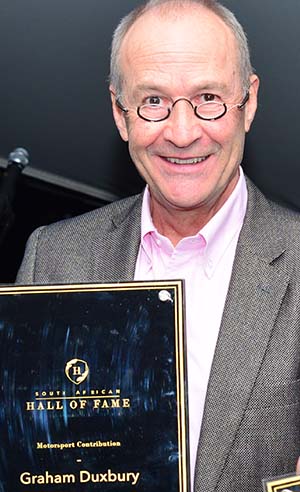Having won four consecutive Formula One World Drivers’ Championship titles, Max Verstappen has solidified his position as one of the sport’s all-time greats.

Graham Duxbury
By Graham Duxbury
The son of Dutch former F1 driver Jos Verstappen and Belgian former kart racer Sophie Kumpen, Max has racing blood in his veins and has been a fierce competitor from an early age.
In 2015, aged 17, he become the youngest driver in F1 history when he entered the Australian Grand Prix driving for Toro Rosso, the Red Bull junior team. A year later he was promoted to the senior team and won his first GP – the 2016 Spanish GP – on debut. He remains the youngest-ever GP winner.
Verstappen’s focus on winning has struck a chord with a new generation of fans many of whom have discovered the sport thanks to Netflix’s Drive to Survive.
His bold personality, fierce driving style, and relentless determination have all contributed to his mystique, adding depth to the story of the sport.
For younger fans, Max has become a role model. His rapid ascent to become a multiple world champion has demonstrated the value of grabbing early opportunities and maximising them.
His victories have energised his native Netherlands, turning the Dutch Grand Prix into a sea of orange enthusiasm. This “Max Mania” is not reserved only for Zandvoort, but has expended to many circuits where Verstappen fans – the “orange army” – have made their presence felt.
However, there is a downside to Max’ popularity. To the irritation of traditionalists, some new fans are growing increasingly tribal. Social media platforms are filled with often boring and irrelevant debates between Verstappen supporters and detractors.
Verstappen has had to face many criticisms during his career, including a claim by former world champion Damon Hill – that he (Max) uses “fear and intimidation” to dominate his rivals.
What’s more, McLaren’s Lando Norris has suggested that Max’s acclaimed and dominant win in the rain-soaked 2024 Brazilian GP was down to “luck and not talent”.
However, criticism is not unique to Verstappen. Michael Schumacher, Sebastian Vettel and Lewis Hamilton – all of whom won consecutive titles with one team – periodically faced similar scrutiny.
Schumacher is a natural comparison to Verstappen. The German’s five consecutive titles with Ferrari (2000-2004) represent many similarities – and differences – within the context of their eras.
Schumacher’s partnership with Ferrari revolutionised F1 by setting new standards in driver-team collaboration, where every aspect – from race strategy to fitness – was meticulously optimised.
Similarly, Verstappen’s relationship with Red Bull, underpinned by Adrian Newey’s technical genius and Christian Horner’s leadership, reflects a modern version of Schumacher’s blueprint.
Another, and perhaps more direct, comparison can be drawn between Verstappen and Vettel, whose four consecutive titles (2010-2013) were achieved with Red Bull.
Both drivers benefited from the brilliance of Adrian Newey, whose engineering mastery played a key role in designing dominant cars. Vettel’s success was built around the RB6-RB9 series, which excelled in the “blown diffuser” era, while Verstappen’s titles have been defined by the RB18-RB19, featuring aerodynamic superiority in the era of ground-effect regulations.
This shared technical foundation highlights Red Bull’s remarkable ability to adapt to changing rules and sustain dominance across vastly different F1 eras.
However, Verstappen’s path to world championship success has arguably come under greater scrutiny, not only because of his youth but because his rise coincided with an explosion in the popularity of F1. Vettel, while dominant, raced under a less-intense spotlight.
Hamilton, who won all seven of his titles powered by Mercedes engines, also bears comparison with Verstappen. Both drivers have dominated in their respective eras.
Hamilton’s success was underpinned by Mercedes’ mastery of the hybrid power unit regulations introduced in 2014, creating a platform that allowed him to showcase his exceptional talent.
Similarly, Verstappen’s dominance has been driven by Red Bull’s aerodynamic expertise, coupled with his ability to understand and optimise the handling of the cars he has driven.
A significant point of comparison is their ability to thrive under pressure and recover from setbacks with impressive comebacks.
In summary, Max Verstappen’s reign should be seen as more than simply another chapter in F1 history. He is a generational talent and a sporting phenomenon whose success has wide-reaching implications for F1’s global appeal.
And as he continues to rewrite the record books, he can be expected to move closer to the seven titles of Hamilton and Schumaker.
